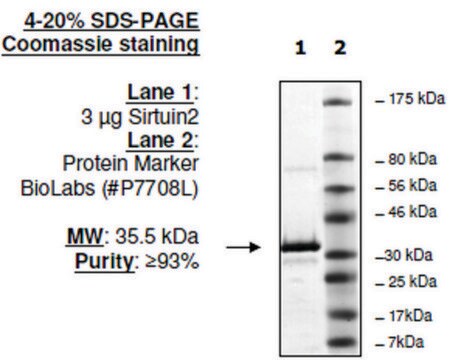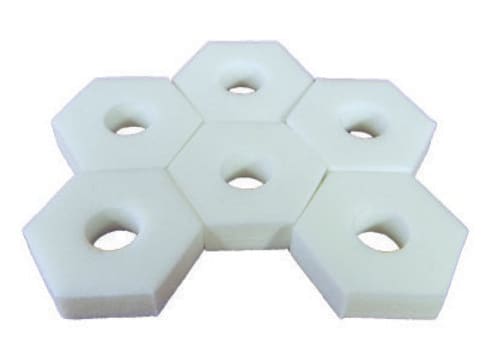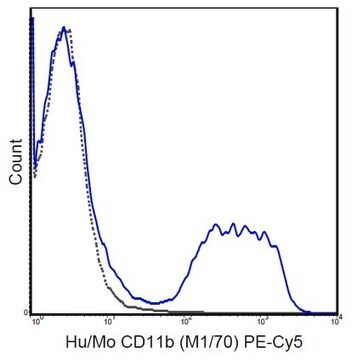EPI010
Sirtuin 2 (SIRT2) Inhibitor Screening Assay Kit
100 assays in 96 well plates
About This Item
Recommended Products
usage
100 assays in 96 well plates
storage condition
protect from light
NCBI accession no.
shipped in
wet ice
storage temp.
−20°C
Gene Information
human ... SIRT2(22933)
mouse ... SIRT2(64383)
General description
With Sigma′s Sirtuin Inhibitor Screening Kit, Sirtuin deacetylates the Substrate, and then a Developer cleaves the deacetylated substrate to release a fluorescent group, the latter of which can be detected at Ex/Em = 395/541 nm. In the presence of a SIRT inhibitor, the deacetylation will be impeded, preventing substrate cleavage and release of the fluorescent group. The kit provides a rapid, simple, sensitive, and reliable test, which is suitable for both low and high-throughput screening of SIRT2 inhibitors. A positive control inhibitor, Nicotinamide, is included to compare with the efficacy of the test inhibitors.
Application
Biochem/physiol Actions
Features and Benefits
- Simple, sensitive, and reliable assay
- Species reactivity: mammalian
- Utilizes fluorometric methods
- Suitable for individual tests or high throughput assays
- Convenient 96-well microplate format
- Screening and characterization of Sirtuin inhibitors
related product
Signal Word
Warning
Hazard Statements
Precautionary Statements
Hazard Classifications
Eye Irrit. 2 - STOT SE 3
Target Organs
Respiratory system
Storage Class Code
10 - Combustible liquids
Regulatory Listings
Regulatory Listings are mainly provided for chemical products. Only limited information can be provided here for non-chemical products. No entry means none of the components are listed. It is the user’s obligation to ensure the safe and legal use of the product.
EU REACH Annex XIV (Authorisation List)
Certificates of Analysis (COA)
Search for Certificates of Analysis (COA) by entering the products Lot/Batch Number. Lot and Batch Numbers can be found on a product’s label following the words ‘Lot’ or ‘Batch’.
Already Own This Product?
Find documentation for the products that you have recently purchased in the Document Library.
Our team of scientists has experience in all areas of research including Life Science, Material Science, Chemical Synthesis, Chromatography, Analytical and many others.
Contact Technical Service









